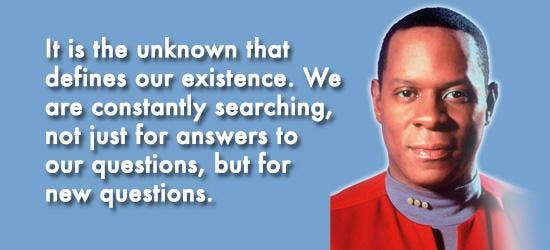Published Apr 9, 2015
ITALIAN TREK: Trekker vs. Trek Fan
ITALIAN TREK: Trekker vs. Trek Fan

Star Trek is a worldwide phenomenon. StarTrek.com occasionally presents theme pieces and interviews featured in Inside Star Trek Magazine, the official Star Trek magazine of Italy. Today, we're pleased to share a recent Inside Star Trek Magazine feature that explores the differences and commonalities between Trekkers and Star Trek fans. The story below had been translated from Italian into English by the magazine’s editor.
Trekkers and Star Trek fans... Is it the same? What is the difference (if any) between a Star Trek fan and a Trekker?Words can be just words, but actually it’s about the way we communicate our thoughts; so they cannot always be just words. They have a meaning. Trekkers (or Trekkies, as indicated on many dictionaries around the world) are, by definition, “fans of the science fiction television program Star Trek” and, by extension, “people interested in space travel and in books and films about space.” So “Trekkers” and “Star Trek fans” are synonymous? Well, we can certainly say that all Trekkers are Star Trek fans, but what about vice versa? Are all Star Trek fans Trekkers? And then, what does it take to be a Trekker?






